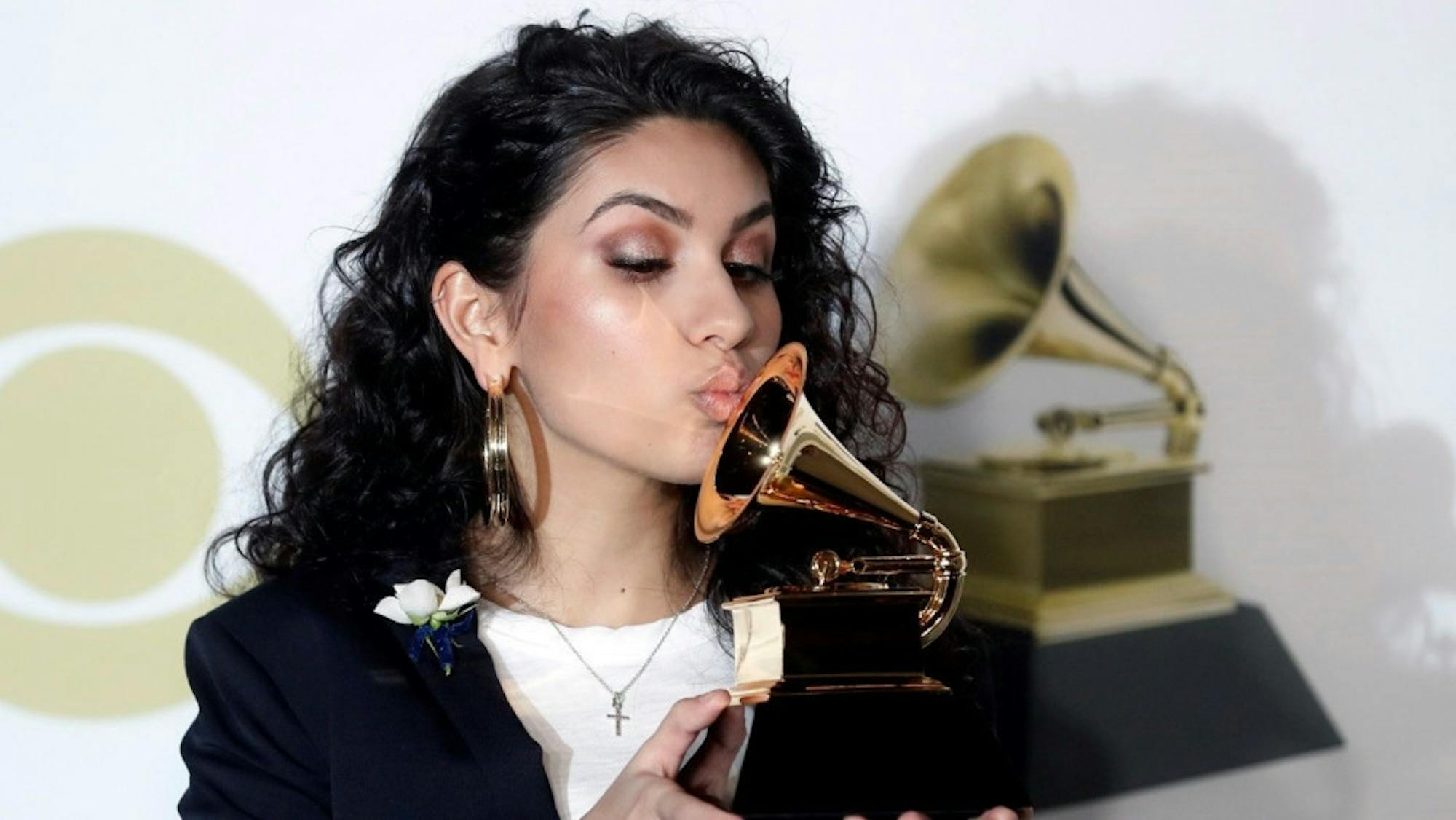This is, unquestionably, a strange and explosive time for the entertainment industry. The #MeToo movement has upended many of the most successful and powerful men in the industry, taking down news anchor giants like Matt Lauer, formerly beloved actors like Kevin Spacey and executives like Harvey Weinstein. The movement has also opened up a dialogue that was muted for decades and is being acknowledged on some of the world’s greatest stages, like at the Golden Globes Awards.
The 75th Globes this past month were, putting it lightly, powerful. Time's Up, a movement started by Hollywood stars to fight sexual harassment took center stage as women wore black in solidarity with the movements, and Oprah’s rousing speech in connection to the #MeToo movement had people discussing her potential in the 2020 presidential campaign. It feels like now is the time to truly acknowledge the work of women in the entertainment industry, from film to television to theater to music. However, last night at the 60th Annual Grammy Awards, the acknowledgment was nearly absent.
When nominations for the 60th Grammy Awards were announced, it was easy to notice the sheer male domination in the categories. This should not be surprising, as a recent USC study found that more than 90 percent of Grammy nominees between 2013 and 2018 were male. The Album of the Year category featured only one female nominee, Lorde, with her critically acclaimed “Melodrama” (2017). This was Lorde’s only nomination. Female nominees were completely missing from the Record of the Year category. Alessia Cara was the sole female nominee for Best Pop Duo/Group Performance and was only featured on a song. Rihanna was nominated for Best Rap/Sung Performance but, again, only as a feature on a song.
Lana Del Rey, Lady Gaga and Kesha all held nominations in the Best Pop Vocal Album, and SZA led the pack of female nominations with five. There was some hope going into the awards, but as each category’s winner was announced, it became clear that these Grammys were going to be more male-dominated than ever.
Out of the main awards, only one woman, Alessia Cara, won, and that was for Best New Artist.Kendrick Lamar’s “Loyalty” (2017), featuring Rihanna, won Best Rap/Sung Performance.SZA, the most nominated female, did not win a single Grammy. All other main categories, from Record of the Year to Song of the Year to Best Pop Solo Performance to Best Pop Vocal Album, were won by men.
The awards show, however, saw strong performances from multiple women like Lady Gaga, SZA and Miley Cyrus. Kesha, Camila Cabello, Cyndi Lauper, Julia Michaels, Andra Day and Bebe Rexha dominated the night with a performance of “Praying” (2017) from Kesha’s critically acclaimed “Rainbow” (2017), the performance supporting #MeToo and becoming one of the most talked-about moments. While these women’s performances were hailed as some of the best of the night, they did not win their awards. Why? To this writer, it truly feels like the Grammys used these women for their performances, knowing viewers wanted to see acts like SZA and Cardi B, but did not appreciate their work enough to give them the actual awards they were there for.
A true snub of the night was Lorde not winning the one category she was nominated for or getting to perform. Prior to the show, sources saythat Lorde was not offered a solo spot. She was, instead, offered a spot in the Tom Petty tribute. Lorde declined, considering that the four other Album of the Year nominees were offered solo spots and the ability to perform their own music.
When asked about Lorde’s shutout, Recording Academy President Neil Portnow said, “We have a wealth of riches every year, and it's hard to have a balanced show and have everybody involved ... We can't have a performance from every nominee — we have over 80 categories — so we have to realize that we have to create something that has balance.”
It seems, however, the Grammys had plenty of space for performances from the rest of the male-dominated Album of the Year nominees, plenty of performances from non-nominated acts, a James Corden Subway Karaoke segment, a reading of "Fire and Fury" (2017) and multiple performance slots for some artists such as Sting.
Portnow went on to say, “I think it has to begin with women who have the creativity in their hearts and their souls — who want to be musicians, who want to be engineers, who want to be producers, who want to be part of the industry on an executive level — to step up, because I think they would be welcome.”
This answer was terrible, considering women created music ranging in themes from heartbreak and independence to cancer and sexual assault. There was plenty of creativity from women across the music industry. There was plenty of critically acclaimed female talent to choose from, nominate and give the awards to. Women used creativity in their hearts and their souls and wanted to be part of this industry on all levels, so how much more can they step up?
Grammys provoke new fitting hashtag: #GrammysSoMale

Alessia Cara poses with her Grammy award for Best New Artist.





